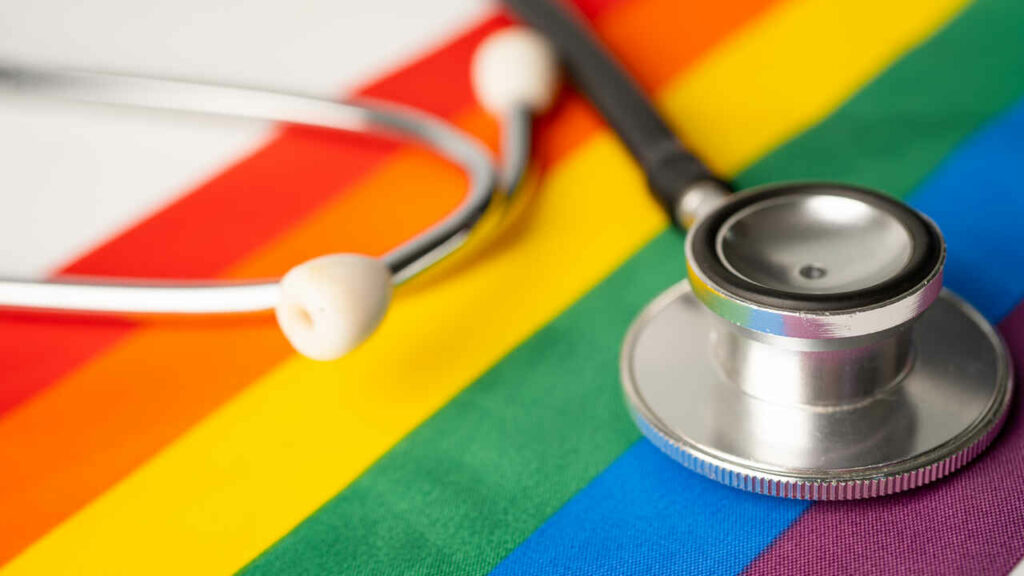In recent years, the importance of addressing the specific health concerns of the LGBTQ+ community has gained recognition. This article focuses on the health issues faced by gay individuals and explores various aspects related to their physical and mental well-being. By understanding and addressing these challenges, we can work towards creating a healthier and more inclusive society.
Contents
Understanding Gay Health Issues

In recent years, society has made significant progress toward inclusivity and acceptance of diverse sexual orientations. However, despite these advancements, there are still unique health challenges faced by the gay community. It is crucial to shed light on these issues to promote awareness, understanding, and the overall well-being of gay individuals.
Gay health issues encompass a range of physical, mental, and social concerns unique to individuals who identify as gay. Recognizing and addressing these issues is crucial for the overall well-being and quality of life of gay individuals.
Types of Gay Health Issues

These are some types of gay health issues including impact on mental health and physical impacts:
Mental Health
Mental health is a critical aspect of overall well-being, and it can be particularly vulnerable for gay individuals due to societal stigmatization, discrimination, and minority stress. Here are some key points to consider:
- Coming Out and Self-Acceptance: The process of coming out can be emotionally challenging. Supportive environments and access to mental health professionals can greatly assist individuals in navigating this process.
- Depression and Anxiety: Gay individuals have higher rates of depression and anxiety compared to the general population. These conditions may stem from experiences of discrimination, social isolation, or rejection. Seeking therapy or support groups can be beneficial.
- Substance Abuse: Some gay individuals may turn to substance abuse as a coping mechanism. Substance abuse treatment programs tailored to the unique needs of the LGBTQ+ community can provide the necessary support.
HIV/AIDS
Historically, the gay community has been disproportionately affected by HIV/AIDS. While advancements in medical treatments have improved life expectancy and quality of life, it remains crucial to stay informed about prevention strategies, regular testing, and available treatments. Key points include:
- Safer Sex Practices: Consistent condom use, regular testing, and open communication about HIV status with partners are vital for preventing the spread of HIV. Pre-exposure prophylaxis (PrEP) is an effective preventative medication for individuals at high risk.
- Treatment and Support: Antiretroviral therapy (ART) has revolutionized HIV treatment, significantly reducing viral loads and increasing life expectancy. Support groups and healthcare professionals specializing in HIV/AIDS can provide invaluable guidance.
Sexual Health
Sexual health encompasses a range of concerns, including sexually transmitted infections (STIs), routine screenings, and preventive measures:
- Regular STI Testing: Routine testing for STIs, including syphilis, gonorrhea, and chlamydia, is essential for early detection and treatment. Healthcare providers and LGBTQ+-friendly clinics can offer comprehensive sexual health services.
- Human Papillomavirus (HPV) Vaccination: Gay men are at higher risk for HPV-related cancers. Vaccination against HPV is recommended for both gay men and women.
Discrimination and Healthcare Disparities
The experience of discrimination can negatively impact health outcomes and healthcare access for gay individuals:
- Inclusive Healthcare Providers: Seeking healthcare professionals who are knowledgeable about LGBTQ+ health issues and provide a safe and accepting environment is crucial. LGBTQ+ clinics or directories can help identify these providers.
- Mental Healthcare: LGBTQ+-affirming therapists and counselors can provide support in dealing with discrimination-related stressors and promote overall well-being.
Barriers to Healthcare Access

These are some of the barriers to healthcare access:
Financial Barriers
Lack of Health Insurance: One significant barrier is the absence of health insurance coverage. Many individuals, particularly low-income and marginalized communities, struggle to afford insurance premiums, deductibles, and co-pays. Expanding access to affordable health insurance options, such as Medicaid or subsidized plans, can help alleviate this barrier.
High Healthcare Costs: Even for those with insurance, the rising costs of healthcare services, prescription medications, and medical procedures pose significant challenges. Implementing cost containment measures, negotiating drug prices, and providing subsidies for essential medications can make healthcare more affordable.
Geographic Barriers
Limited Access in Rural Areas: Rural communities often face challenges in accessing healthcare due to long distances, lack of transportation, and a shortage of healthcare providers. Expanding telehealth services, and mobile clinics, and providing incentives for healthcare professionals to practice in underserved areas can help bridge this gap.
Urban Healthcare Deserts: In some urban areas, healthcare facilities may be concentrated in certain neighborhoods, leaving others underserved. Establishing more healthcare facilities in these underserved areas and improving public transportation options can enhance accessibility.
Cultural and Linguistic Barriers
Language Barriers: Individuals with limited English proficiency may struggle to communicate effectively with healthcare providers, leading to misunderstandings and suboptimal care. Providing interpreters or language services can improve communication and ensure that patients receive appropriate care.
Cultural Competence: Cultural differences and biases can impact the delivery of healthcare services. Healthcare providers should receive training in cultural competence, acknowledging and respecting diverse beliefs, practices, and health-seeking behaviors.
Systemic Barriers
Discrimination and Stigma: Discrimination based on race, ethnicity, gender identity, sexual orientation, or socioeconomic status can create mistrust and deter individuals from seeking healthcare. Addressing implicit biases, promoting diversity in the healthcare workforce, and implementing anti-discrimination policies are essential steps toward overcoming this barrier.
Limited Health Literacy: Low health literacy levels can hinder individuals’ ability to understand health information, navigate the healthcare system, and make informed decisions. Promoting health literacy through educational campaigns, simplified materials, and patient-centered communication can empower individuals to actively participate in their healthcare.
Promoting Gay Health

Here are some ways for promoting gay health:
Education and Awareness
LGBTQ+ Inclusive Sex Education: Implementing comprehensive sex education that includes information on sexual orientation, gender identity, and LGBTQ+ health is crucial. This ensures that young gay individuals receive accurate and inclusive information about sexual health, relationships, and consent.
Health Promotion Campaigns: Developing targeted health promotion campaigns can raise awareness about specific health issues affecting the gay community. These campaigns can focus on mental health, sexual health, substance abuse, and HIV/AIDS prevention. Emphasizing the importance of regular check-ups, screenings, and self-care practices can also contribute to overall well-being.
Access to LGBTQ+ Affirming Healthcare
LGBTQ+ Competent Healthcare Providers: Encouraging healthcare providers to undergo training on LGBTQ+ health issues and cultural competence can improve the quality of care. This includes understanding unique health concerns, being sensitive to pronouns and gender identity, and creating a safe and non-judgmental environment.
LGBTQ+ Health Clinics and Resources: Establishing LGBTQ+ health clinics or designating specific LGBTQ+ healthcare providers helps create spaces where gay individuals can receive comprehensive care tailored to their needs. Promoting and expanding access to LGBTQ+-friendly resources, such as directories, can assist individuals in finding affirming healthcare providers and support services.
Mental Health Support
LGBTQ+ Affirming Therapists: Access to mental health professionals who are knowledgeable about LGBTQ+ issues and affirming diverse sexual orientations is crucial. Providing resources for finding LGBTQ+-friendly therapists or support groups can aid individuals in seeking appropriate mental health support.
Community Support and Safe Spaces: Creating community support networks and safe spaces where gay individuals can connect share experiences, and access resources is essential for fostering mental well-being. LGBTQ+ community centers, support groups, and online platforms can play a significant role in providing these spaces.
Advocacy and Policy Changes
Anti-Discrimination Laws: Supporting and advocating for comprehensive anti-discrimination laws that protect LGBTQ+ individuals in all areas of life, including healthcare, can help reduce health disparities and ensure equal access to services.
Healthcare Provider Training: Encouraging healthcare organizations and institutions to include LGBTQ+ health training in their curricula and continuing education programs helps build a more knowledgeable and inclusive healthcare workforce.
Conclusion
In conclusion, promoting the health and well-being of gay individuals is an important endeavor that requires a comprehensive approach. By addressing the unique challenges and barriers they face, we can create a society that supports and empowers the LGBTQ+ community.
Education and awareness play a crucial role in promoting gay health. By providing inclusive sex education and launching health promotion campaigns, we can ensure that accurate and relevant information reaches young gay individuals. This empowers them to make informed decisions about their sexual health, relationships, and overall well-being.
Life may sometimes be challenging if you are gay, but Online Gay Counseling can help. Get experienced LGBTQ therapists at PrideMantra: Book a trial LGBTQ therapy session.


